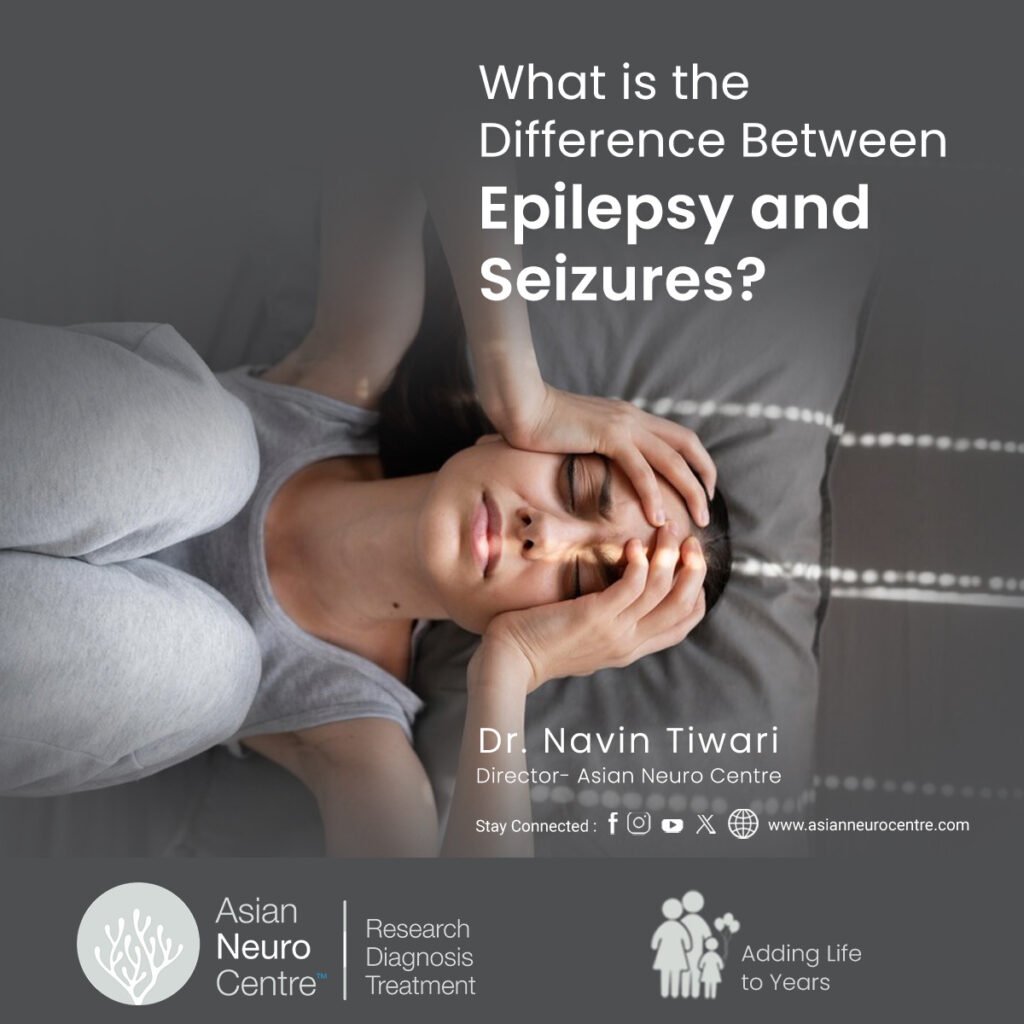- Have any questions?
- 911 12345 29
- info@asianneurocentre.com
What is the Difference Between Epilepsy and Seizures?
Are Hemiplegic Migraines Hereditary?
March 19, 2024Juvenile Myoclonic Epilepsy, Symptoms, Causes, Treatment
March 27, 2024What is Seizures?
Seizures can be classified into different types based on their symptoms. It happens when there is a brief, abnormal burst of electrical activity. This can lead to different symptoms, such as staring spells, muscle twitches, or loss of consciousness.
Seizures can be caused by various factors, like a high fever, head injury, or certain medical conditions.
What is Epilepsy?
Epilepsy is a chronic neurological disorder characterized by recurring seizures. If someone has two or more seizures, they might be diagnosed with epilepsy. Epilepsy is more than just the seizures themselves.
It can affect a person’s daily life, relationships, and overall well-being. The causes of epilepsy can be diverse, ranging from genetic factors to brain injuries or infections.

What is the Difference Between Epilepsy and Seizures?
Epilepsy and seizures are terms often used interchangeably, but they refer to distinct concepts. Understanding the difference between them is crucial for grasping the complexities of these neurological phenomena.
Seizures are sudden, uncontrolled electrical disturbances in the brain that can lead to various symptoms. These can range from mild, such as short confusion to more severe indications like loss of consciousness. Essentially, a seizure is temporary which can cause abnormal behaviors or sensations.
On the other hand, epilepsy is a neurological disorder described by recurrent seizures. In other words, if someone experiences two or more seizures, they may be diagnosed with epilepsy. Epilepsy can affect people of all ages and backgrounds, and its causes can be diverse, including genetic factors, brain injuries, infections, or developmental disorders.
Living with epilepsy or experiencing seizures can be challenging, but it’s important to know that many people with epilepsy lead full and active lives. With the right treatment and support, it’s possible to manage seizures and minimize their impact on daily life.
Dr. Navin Tiwari
Consulting Neurologist
